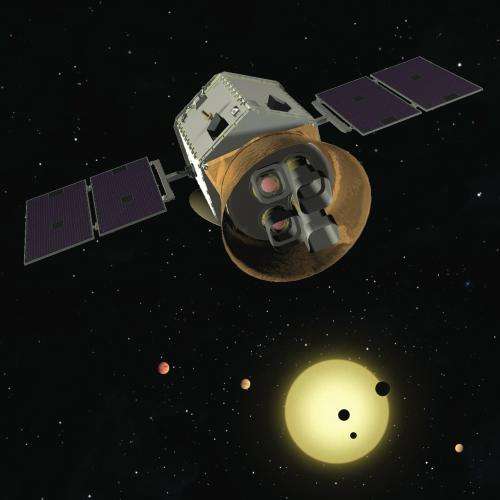NASA doubles down on exoplanets and SETI institute will be part of the search

NASA's Astrophysics Explorer Program has selected the Transiting Exoplanet Survey Satellite (TESS) Mission to fly in 2017. TESS will follow in the footsteps of NASA's pioneering Kepler Mission, continuing the groundbreaking work of discovering Earth-size exoplanets. NASA selected TESS and another explorer mission after a competition that evaluated proposals for the best scientific value and most feasible development plans.
TESS will use an array of four telescopes to perform an all-sky survey to discover transiting exoplanets of all sizes in orbit around the nearest and brightest stars in the sky. Its goal is to identify terrestrial planets in the habitable zones of nearby stars that are best suited for extensive follow up observations and characterization. TESS will collect 10 times as much data during its two-year mission as Kepler did during its first two years. SETI Institute scientist Jon M. Jenkins, co-investigator for data processing for both TESS and Kepler, will lead the development, design and operations of the TESS Data Processing Group (DPG) at NASA Ames Research Center. The DPG will process the raw pixel data downlinked by TESS to detect the minuscule signatures of transiting exoplanets. The DPG team will leverage the experience of the Science Operations Center of the Kepler Mission to develop a data processing facility that meets the rigorous requirements of the TESS mission at a low cost.
"It's extremely exciting to learn that the profound voyage of discovery that Kepler began in 2009 will continue with a mission to discover Earth's closest cousins," said Jon Jenkins. Most exoplanets discovered by Kepler are hundreds of lights years from Earth.
Provided by SETI Institute




















